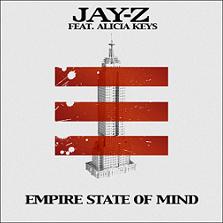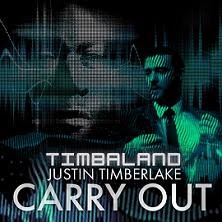 The top seller of music on the Internet iTunes has a new look! Pricing changes to Apple Inc.'s iTunes Store have gone into effect, with some popular songs now $1.29 apiece.
The top seller of music on the Internet iTunes has a new look! Pricing changes to Apple Inc.'s iTunes Store have gone into effect, with some popular songs now $1.29 apiece.  Apple said in January that it would end its practice of selling all songs for 99 cents a piece and begin offering three tiers: 69 cents, 99 cents and $1.29. Record companies can pick the prices.
Apple said in January that it would end its practice of selling all songs for 99 cents a piece and begin offering three tiers: 69 cents, 99 cents and $1.29. Record companies can pick the prices.In exchange for the ability to set prices, record labels agreed to sell all songs on iTunes without "digital rights management" technology that hampers users' abilities to copy tracks or play them on multiple computers. What do you think?





+Made+by+Nixmix.jpg)






















It's wierd....prices going up means people won't buy them as often :*
ReplyDeleteI wish they were all 99 cents
ReplyDeletetime! Now some of those older songs out there will be cheaper then 99 cents, as they should be! Make people pay more for those songs in demand, that's capitalism! And then sell other songs for like 79 or 69 cents, or even less. This will rule! (Esp. since all the good music is 10 years old or older anyway!).
ReplyDeleteWhat? What do you mean they won't cut the low end, and just raise the high-end? That can't be right. That would be like trying to suck as much money out of the music buying public. And that doesn't sound like the record industry to me...
As for Fairplay, Apple better get on board somewhere, because too many newer CDs (so I heard, since all the good music is 10+ years old, I don't worry about it much) are copy protected, you're basically between a rock and a hard place on what you can buy and where you can use it.
lower quality, higher price... leave it to the 'suits'... easy to be more sympathetic to those downloading music... support artists, not middlemen...
ReplyDeleteperhaps apple can 'buy direct', or has that been the longer term 'garage band' plan all along...?
that sucks :(
ReplyDeleteSo does this mean the CDs can be ripped to iTunes? I don't see it being specific to the iPod itself, but more to the MacOS.
ReplyDeleteApple won't play ball and the DRM that is showing up on CDs only stops Windows users of iTunes from ripping. For example, I ripped the latest Dave Matthews Band CD just fine, but iTunes users on Windows supposedly cannot do so. There are workarounds, however.
ReplyDeletetry to send a letter every month listing how many tracks I have bought, and listing albums I will not buy because of their cost.
ReplyDeleteFor me, a $12 CD and a $10 electronic download compare well. I refuse to pay more, and thus muss a lot of new soundtracks. I figure that if Apple and each of the labels gets a list of specific purchases, and specific purchases rejected, because of cost, they may factor this into their pricing plans.
Marketing executives often work completely in the dark, so letters with real dollar amounts are often very convincing.
The other day I went by Virgin records megastore here in Miami and I was surprised how empty they were on a Sunday. This store used to be jamming years ago. I kept thinking there is no way these guys can be making money. I haven't bought a CD in years. So I see this being the new "record store" so raising prices sounds great!
ReplyDeleteThe record industry continues to prove that it is one of the stupidest, most greedy industries around. Raising iTunes prices is only going to kill this market, I'm not buying at more than .99 cents... sorry. And I've not bought one single CD in what, the past two years? Sorry, I'm not going to start buying CDs again either. In fact, I really can't, as all the CD stores in my area have gone out of business.
ReplyDeleteI don't buy much music, but all my purchases are either CD or DVD. There's no way I would pay 95% of the price of a CD for 25% sound quality. I'm not paying 0.99 per song for 128kbit, it's that simple.
ReplyDeleteThe market demand should automatically and dynamically decide pricing. This could be designed into the system.
ReplyDeleteIf a product isn't selling (the tune), then the prices should be adjusted until it does.
Do you get my point? This paradigm is played out every day in our retail stores. Just recently I picked up a $500 sports jacket for $80. Why? Last years style.
The record companies are brain dead idiots. They missed the boat with digital music sales and Apple had to show them how to do it. Maybe they should fire the young snots that run the companies and get some real business people in there.
Sosa, the people who still buy CDs are the ones who want good sound quality (not compressed), cover art and liner notes, and a whole lot of music that isn't available at the iTunes store. The tactile experience of browsing through a stack of CDs (or--heaven forbid--vinyl LPs) is much more rewarding than scrolling through the iTunes window.
ReplyDeleteThe record companies want us to pay more for a product that it costs them less to produce and sell? I see. for every AAC file downloaded from iTunes, none of the record labels needed to press a CD or pay anyone to ship to a store or what have you, but they want MORE money from the product.
ReplyDeleteWell, most people can't tell (or don't care) about the degradation of sound quality (and, as I try to say time and again, unless you have both, you can't do a comparison and tell, so if you buy a song on iTMS, how do you know it sounds bad? Maybe its supposed to sound that way.)
ReplyDeleteAlso, most people don't have an orgasm browsing through a stack of CDs. Usually its more of a "Where the hell is my damned "Starland Vocal Band's Greatest Hits" CD! Freakin' A!. Nor do they bother reading the liner notes (if the CD has liner notes - no, not all of them do) or even bothering noticing the cover art (which was more of an art when the covers were for LPs, not those tiny CDs). I only listen to my music on my iPod, so I'd have to compress it anyway.
One thing people are missing with this discussion of compressed vs non-compressed talk (and trolling): DRM means someone else has control over how/where you play the music you've purchased.
ReplyDeleteSo not only are you paying for a most likely degraded version of the song, you're also limited in how you can play it, with no guarantee the you won't be further limited in the future.
This alone convinces me that DRM stuff is not worth the price. At any cost.
What the hell???? Are you serious? Why are they raising prices...are we getting better quality? NOPE.
ReplyDeleteNothing is cost effective anymore.
ReplyDeleteAnd they wonder why people download illegally so much.... stop being so greedy!!! It's time to make music for the art of it and not because of the $$$$$$$$
ReplyDeleteRaise the prices and piracy will increase once again. I think Steve Jobs will raise this as an issue. The reason he liked the price point where it is now is it was affordable and reasonable. Raising the prices will just make people go back to piracy once again. They are making profits hand over fist and then there greed is going to blow it once again.
ReplyDeleteNot again! Here comes another round of piracy infringement lawsuits.
ReplyDeleteIt's a bit off topic but copy protected CD's are a poorly executed idea. The technology doesn't work on Windows (just hold down the shift key) and it doesn't work on Mac (just, well use a Mac and iTunes)! In the US CPCD's started to become more popular after the huge sales of Velvet Revolver (one of the 1st US main stream albums to include copy protection). At the time this CD was described as being "iPod or iTunes incompatible". The fact that any Mac user could simply copy this album straight to their iPod shows the real lack of "protection" CPCD's offer. Record companies keep trying to hinder their customers with DRM as a way to boost their profits. This just shows how much record execs don't know about their customer's needs or wants. The big record companies make more money on the sale of records today than at any other time in the history of music. Yet their profits don't always seem to agree with this statement. Maybe it's because a few greedy execs need to take a pay cut and these companies need to stop spending so much on lawsuites against their loyal music fans for sharing a few songs!!! Maybe it's time the big record companies find a different business model!
ReplyDeleteThey way I look at it, I love my Limewire. Ill keep pirating until the music industry wises up and lets me purchase music WITHOUT the slavery shackles of DRM (fairplay or otherwise).
ReplyDeleteWhats going to happen 10 years from now with Fairplay? What IF apple dies? Then what happens to my 100CD iTunes collection?
I used to manage several regional artists (with several "signed" acts). The music industry is NOTHING more than the following:
Loan Sharks: they LEND the musician money to produce a set number of albums, which they can reject indefinitely until they get what they want. And all the money Lent to the artist must be paid back, with intererest.
Thieves of Copyright: The music companies actually own the music you listen to, not the artist. Contracturally, its a shell game.
Glorified Promotion Agencies: Record companies are NOTHING MORE than promotion agencies. Anyone can produce an album, especially with the technologies today available in the Mac. If you want Ted Templeman for that "Van Halen" production style, hire him yourself as you would hire any one else to do anything for you. If I were to promote anything, I would hire Apple Chiat Day!!!! instead of Geffen.
Monopoly: the record industry is monopolized by an ethno-religious group: Jews. This is not an anti-semetic remark. Over 80% of all owners, producers in L.A. are jews when only 2% of the over all U.S. Population is. What does this lead to? Well, nepotism, favoritism, discrimination, locking out people of unlike minds, religion, etc. No one would argue that MEN or Whites used to dominate certian industries, so why argue here.
The fact is that the music industry is ripe with corruption, greed, and back stabbing scumbags. Piracy is just-desserts for the motley group. I say bring it on. There are millions of unsigned, unpopular great artists out there that are on the net, that can now use iTunes, that can blossom now that the Goliath has been slain.
So there ARE music companies where the artist DOES own their music, the contracts are NOT as antiquated as the above poster suggests and there are actually new methods slowly but surely changing the system. For instance, I know of a company that actually splits the profits right down the middle with the artists and everyone's happy! See the music industry used to be filled with people like those above, but they are being replaced slowly but surely. The music industry in 10 to 15 years will not resemble the industry of old.
ReplyDeleteAs far as the statment "The market demand should automatically and dynamically decide pricing. This could be designed into the system. If a product isn't selling (the tune), then the prices should be adjusted until it does," I'd say, no problem! As long as you agree that whenever you slack off at work or stop to go to the bathroom, we can stop paying you because you are not helping us make a profit either. See while the ideology sounds good in theory, an artist should be able to charge whatever they want for their work. You don't like it, don't buy it. Any deal I make with a label is my business.
iTunes is already way overpriced considering that you get compressed audio and DRM restrictions.
ReplyDeleteIf they raise prices I won't ever use it at all. I already only use it very rarely for a song here and there, but the DRM and sound quality make it not worth the hassle.
Apple could agree to the music industry terms of prices and then structure their overall losses (billions in the bank) to compensate for the more expensive tracks and keep everything at 99cents. This would just reinforce their market dominance. Alternately they could raise prices, lose customers, and more piracy would ensue.
ReplyDeleteLicense their digital rights management? That's one to hold close to the chest. ipod PLAYS EVERYTHING would be great, but you can expect M$ to start locking everything down as quickly as they can.
ReplyDeleteThe Music industry is an oligopoly within which the corporate structure tends to recruit from within a limited group, thus making it more difficult for others to work for even established companies; however individuals with the correct education and/or skills are still rewarded and able to enter the market on a limited basis.
ReplyDeleteThe record industry is monopolized by an ethno-religious group: Jews. This is not an anti-semetic remark. Over 80% of all owners, producers in L.A. are jews when only 2% of the over all U.S. Population is. What does this lead to? Well, nepotism, favoritism, discrimination, locking out people of unlike minds, religion, etc. No one would argue that MEN or Whites used to dominate certian industries, so why argue here.
ReplyDeleteFirst, what do you mean MEN or WHITES used to domintate certain industries. In general, they still dominate most industries. Its hard for women or minorities to succeed, mainly because white guys tend to work with other white guys (religion not-withstanding).
Second, what does the fact that their jewish have anything in particular to do with anything. Bringing up religion is pointless. Esp. since, as you say, it locks out people of like minds, why aren't there more jewish musical acts? And forget the whole Jewish thing. Let's say you owned a business, regardless of what it is. Would you hire people who had completely different ideas on how to run the business then you did? (If you answer "Yes", you're lying through your ass). Having someone with some different ideas might be nice, but in general you don't want to be working with a group of people who all have different ideas on how to succeed or make money, as they'll all just end up competing and sabotauging each other. For example, Apple's dark years (early to late 90's) was highlighted by all the different interal groups thinking their projects were the ones that needed attention and funding, trying to push their ideas and denigrating the others.
And what of the other 20%. Are they completely unable to battle the 80%. Can't they come up with the different ideas? Different pricing models. Different distribution methods? And wouldn't their success then force the others into making changes.
Oh, and if record companies are basically PR guys and thieves, how do they get so many people to sign with them? Why aren't everyone dumping the labels, buy a mac, and producing their onw music?
ive never bought anything from itunes and never will. the quality is noticeably worse and the price is higher per song than a physical cd. so the record company saves on the manufacturing and distribution of: a cd, cd case, artwork, shrinkwrap, barcodes and stickers, yet they raise the prices for a crappy lo-fi download? and yes, that is lo-fi and yes i can absolutely tell the difference.
ReplyDeletealso, i absolutely refuse to buy any cd with copy protection, and you should too. cds do not last long and thus need to be backed up. i wont buy anything who's playability is defined by some idiot trying to make sure i cant copy my cd. one day it wont work in whatever cd player i have, and i wont be able to put it on my computer or mp3 player.
lastly, it is nice that its really easy to boycott, because its still easy to download for free. the music companies have to keep this in mind, increasing prices will increase piracy. i always thought itunes songs were worth no more than 49 cents. when i heard they want to raise the prices above a dollar... what are you kidding me? were making the middle man rich and the artist is still screwed. and now the consumer too. screw this, not a chance. btw music piracy is only bad for the major labels. for us artists, its free advertising. the labels never gave us a fair cut anyway. boycott them.
they should of made all songs 69cents and they would of banked big time :)
ReplyDelete